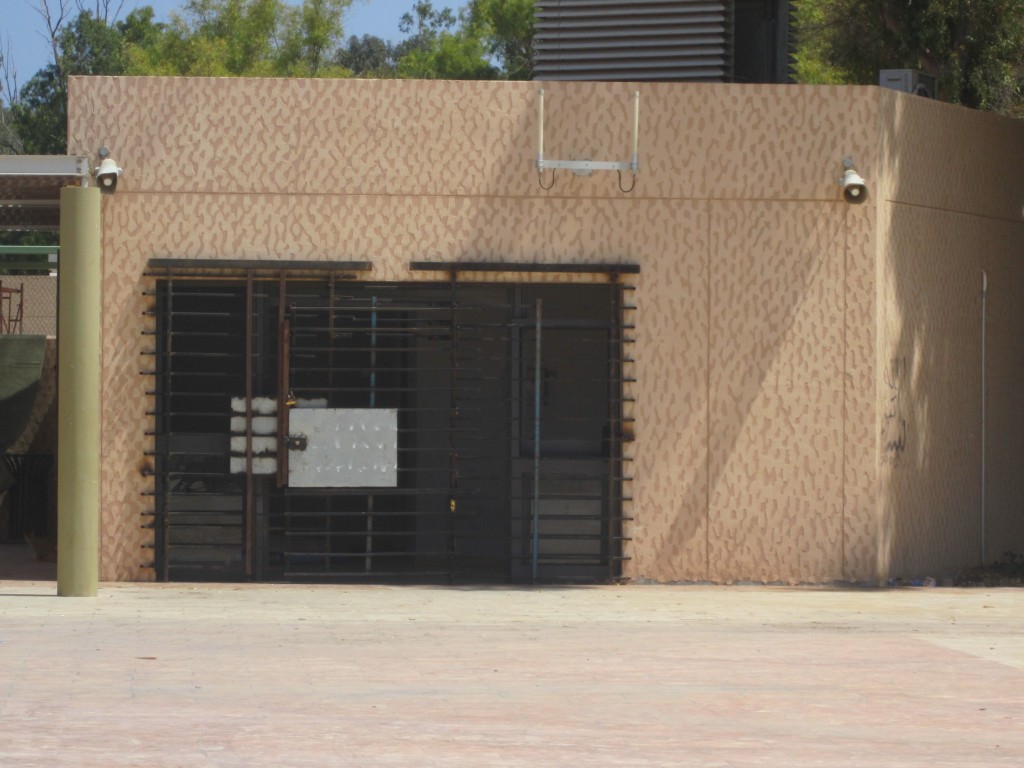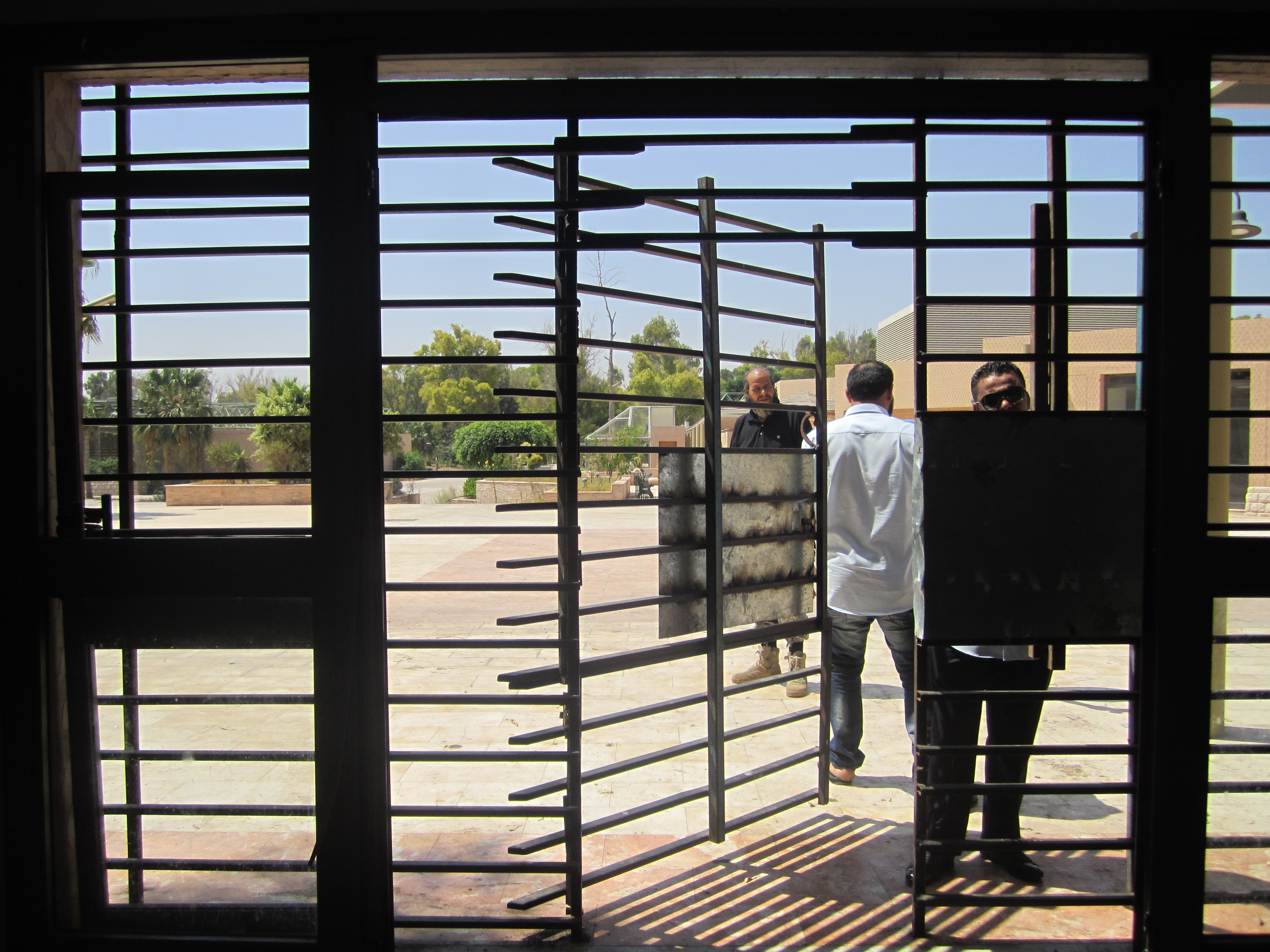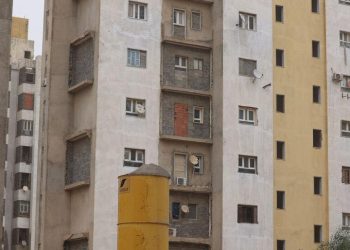By Tom Westcott and Ashraf Abdul Wahab.
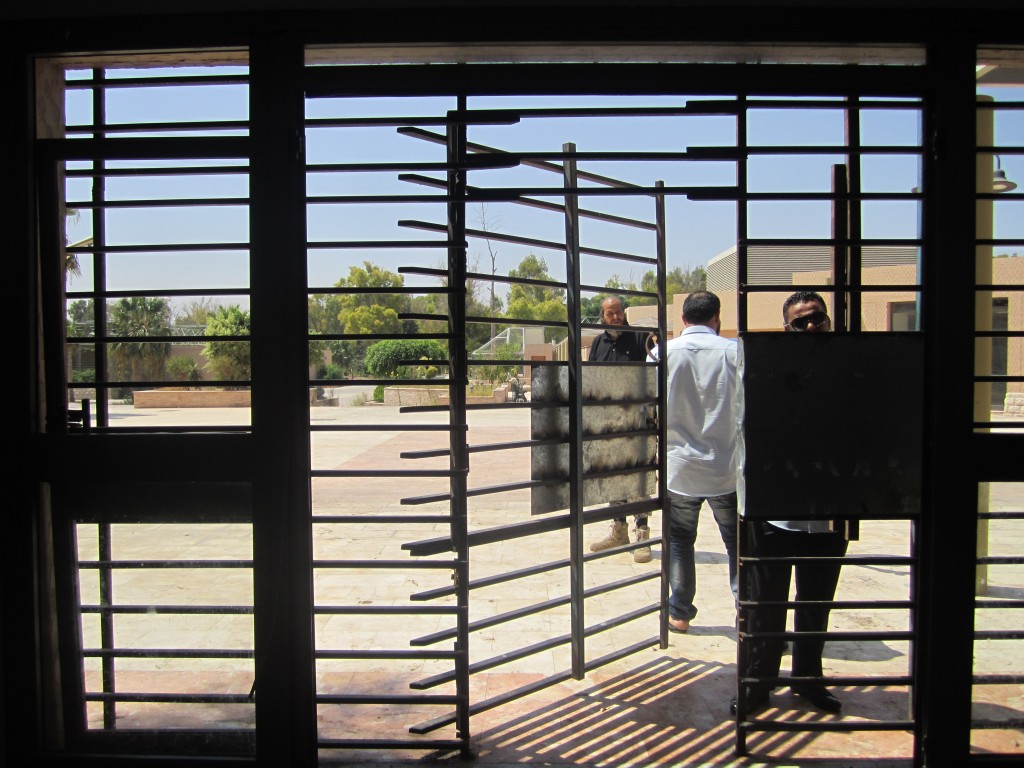
Tripoli, 26 August 2013:
Tripoli zoo is being used to hold foreigners found working illegally and . . .[restrict]picked up by a unit of the capital’s illegal immigration department.
The zoo, closed to the public although still home to several hundred animals, now also houses the operations room of a group of 43 brigades working under Commander Said Gars Alaha. One of these brigades is tasked with checking the health and paperwork of immigrant workers, establishing who has the right to work in the country.
Libya has a poor reputation for detention conditions for refugees and migrants, described as “deplorable” in a recent Amnesty International report. However, both Alaha and the head of the illegal immigration unit based at the zoo, Abdul Razag Al-Gerjame, are keen to point out that they respect the human rights of those they arrest.
“I’m feeding these people with the same food as I and my soldiers eat,” Alaha said. The food – baguette-style sandwiches – is, he said, paid for by members of the underfunded brigade themselves.
The prison itself, on the edge of the grounds of the zoo, has heavily-barred doors and windows. Inside, however, it is surprisingly light, with two air-conditioned rooms, a sink and toilet, and supplies of bottled drinking water. An ironic sticker, grazed by a gunshot hole, on one of the doors advertises a Libyan tourism company.
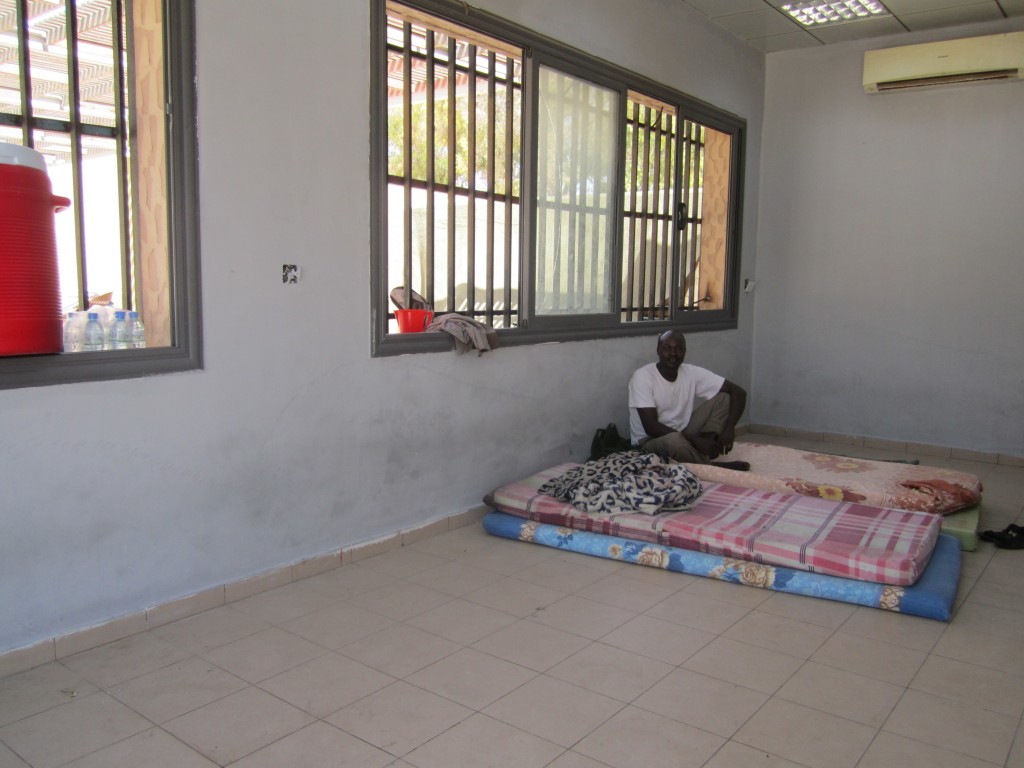
When Libya Herald reporters visited the prison, the main room had four mattresses but only one occupant. Two other prisoners were out doing maintenance work in the zoo. The building was chosen to be the prison cell, Alaha said, because it was one only a few available that had air-conditioning.
The rooms, however, were not particularly clean and there was a trail of drops of blood on the floor between the two back rooms. One of the guards explained that this was from a Libyan who had spent the previous night incarcerated, after being arrested for causing trouble outside the zoo. He was crazy, the guard said, smashed one of the windows and cut himself with the glass.
The institution acts as a holding centre rather than a prison. “We don’t keep anyone here for more than 72 hours,” Alaha said, explaining that most inmates leave within 24 hours, either released – if their paperwork and health are in good order – or transferred to local detention centres for illegal immigrants.
The unit makes arrests made on a daily basis, setting up checkpoints across the city where workers are stopped and have their paperwork inspected. In the last four months alone, Al-Gerjame said, they have arrested 5,000 people, most of whom are from neighbouring African countries.
Libya Herald reporters witnessed a group of ten arrested workers being brought into the zoo. They were questioned about their country of origin – they were from sub-Saharan Africa, Tunisia and Morocco – and their paperwork, if they had any, was inspected. No guns were in evidence and the detainees were treated respectfully.
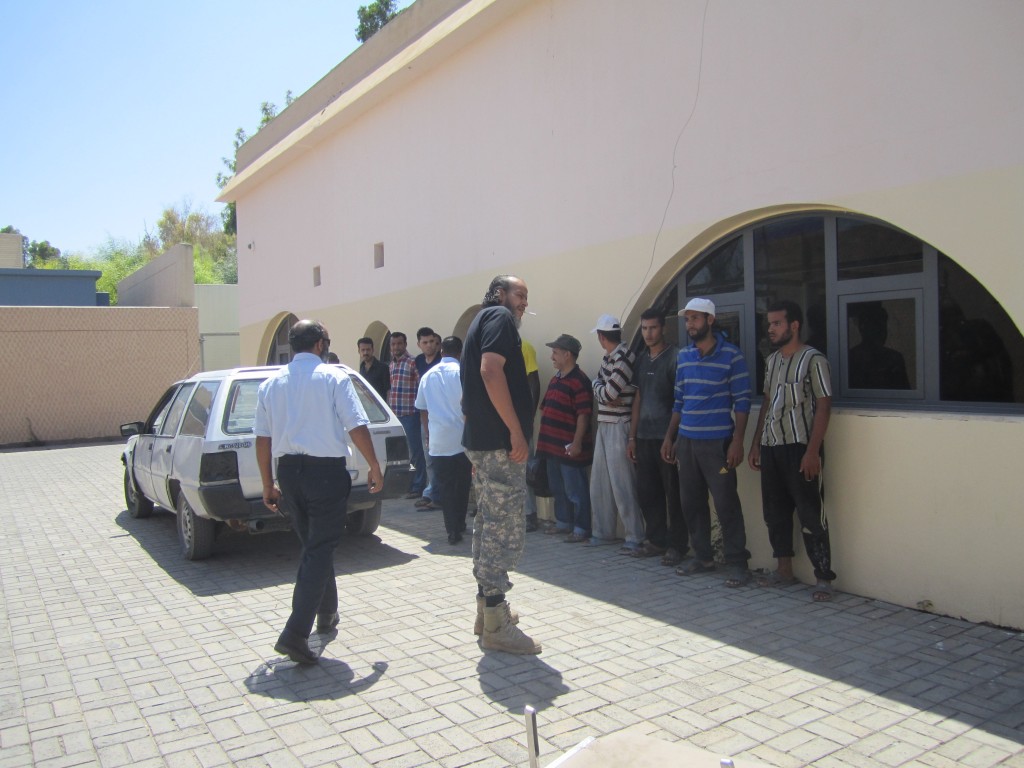
One man from Sudan said he had been working in the country for a year and was planning to leave Libya in a week. “It’s always the same story,” Al-Gerjame said, shaking his head: “Everyone says they are leaving in a week.” He said others with photocopied visas or fake health certificates may have been conned into believing the documents were genuine.
The immigrant workers are allowed to keep their phones with them so they can ask friends or relatives to bring their passports and paperwork to the zoo. “By this evening, probably half of these people will be released,” said Al-Gerjame.
They also undergo blood tests, the results of which are analysed at a government medical centre. Serious diseases of the blood are prevalent amongst migrant workers, Al-Gerjame said, estimating that 20 percent of those arrested test positive for Hepatitis or HIV.
Many of these people have health certificates issued by the Ministry of Health. These can be purchased on the black market for just LD 50 – an option taken by those who think or knows they are HIV-positive. “When they test positive and I ask them why they have a clean medical health card,” Al-Gerjame explained, “they say: ‘I pay the LD 50 because I want to work.’”
There are special detention centres for those with diseases while they await deportation. “If they are ill, they will be transferred outside Libya,” Alaha told the Libya Herald: “If there is no illness, and they have visas, they can stay here and work and pay taxes.”
Political refugees working illegally are also an increasing problem for Libya. “More than 10,000 Syrians have come here since their revolution started,” Al-Gerjame said, “they say they have come through the Emsaid border crossing between Egypt and Libya, but they have no stamps in their passports.”
The border crossing does have an illegal immigration department but, Al-Gerjame said, it is unable to cope with the numbers of people trying to enter the country. He added that whilst these refugees and migrants used to stay in the east of the country, they were now heading to Tripoli, looking for more opportunities to work illegally.
“We cannot return these people to their countries because they have refugee status,” Al-Gerjame said, “so we have to keep them here in Libya.” Workers from Eritrea, Ethiopia and Somalia also cannot be sent home. “This is Libya’s biggest problem,” Al-Gerjame said, “and we have asked the United Nations for help but nobody has any answers.”
